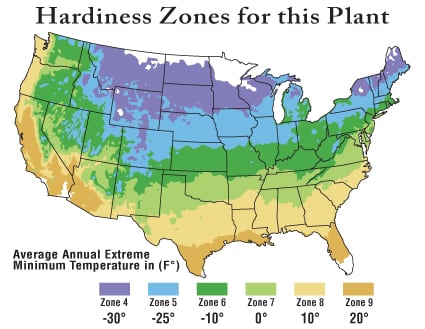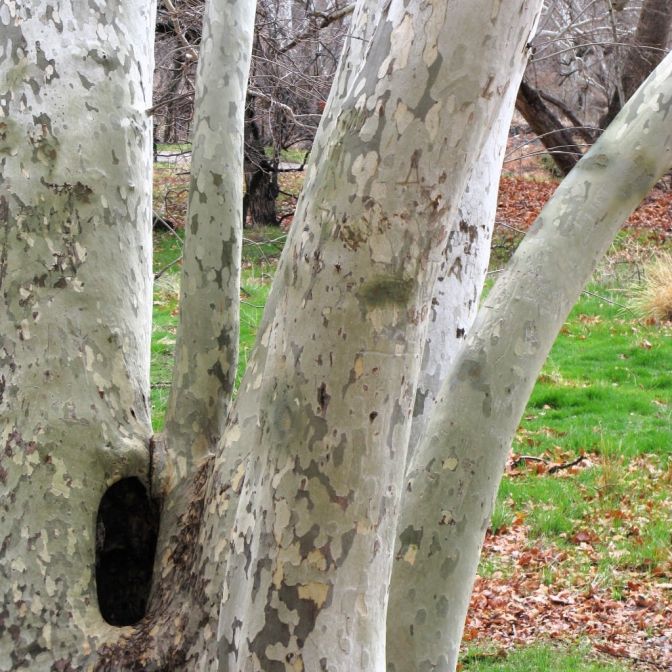American Sycamore
Plant Type: Dormant, bare-root
Zones: 4-9
Soil Type: Clay, Loamy & Sandy Soils
Site Selection: Full Sun
Mature Height & Width: 70-100' Height and 60-80' Spread
Growth Rate: Fast - 24" or more per year once established
Moisture Requirements: Average to wet soils



American Sycamore
Plantanus occidentalis
The American Sycamore is generally acknowledged as the largest tree indigenous to eastern North America. Also known as the American Planetree and Buttonball Tree, this extremely large and fast growing shade tree displays very unique bark. Many describe its bark as looking like camoflauge. The older bark on the trunk naturally exfoliates, leaving a patchwork of greens, browns and yellows against a background of white. The large leaves resemble Maple leaves.
Make sure you have plenty of room to let this tree grow. Commonly reaching over 100' tall, the American Sycamore can live for hundreds of years. This tree is a great choice along the edge of streams or lakes, in wetland and floodplain areas, and is regularly used to reclaim old strip mines and other hard to grow areas with saturated and compacted soils.
The American Sycamore is generally seen in the wild alongside River Birch, Red and Silver Maple, Willows and Cottonwood. If you want a fast growing and large shade tree, the American Sycamore is right for you. Buds are late to form in the spring so sometimes a bit of patience can be required.
The American Sycamore has surface roots which may raise driveways and sidewalks. It is advisable to plant this tree at least 40-50' away from such surfaces. These same roots may make mowing underneath the tree somewhat difficult in areas.
Fun Fact: Native Americans used Sycamore for a variety of medicinal purposes, including cold and cough remedies, as well as dietary, dermatalogical, gynecological, respiratory and gastrointestinal aids.1
1As stated in the USDA / NCRS American Sycamore Plant Guide
Common uses for the American Sycamore:
- Massive shade tree with wide crown and large leaves
- Lumber is used for furniture, particle board and wood pulp
- Year round interest with its unique camoflauge like bark
- Reclamation of strip mines and other difficult areas with saturated or compacted soils
- Erosion control along the banks of streams and rivers
Although the American Sycamore does not have significant wildlife value, many different types of birds do eat the seeds it produces. Cavity nesting birds and mammals regularly use the hollows of older sycamore trees.
Product Questions
Chronological placement of the order
Availability of nursery stock
USDA Hardiness Zone of the shipping address
Customer requested delivery week





